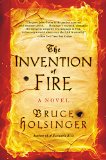Summary | Excerpt | Reviews | Beyond the Book | Readalikes | Genres & Themes | Author Bio

Strode, after glancing back toward the church, gave him a swift nod. Baker moved to a position over the first corpse and flipped the man onto his front, exposing a narrow back thick with churchyard dirt. His apprentice handed him a skin of ale, which Baker used to wet a cloth pulled from his pocket. He washed the corpse's back, smoothed his hand over the bare skin.
"As I suspected," said Baker. "This one stayed inside, you see."
"What stayed inside?" I said. "A bolt, perhaps, from a crossbow?" Baker returned the corpse to its original position and held out a hand to his apprentice, who gave him what looked like a filleting knife of the sort you might see deployed by lines of fishermen casting off the Southwark bankside. With a series of expert movements, Baker sliced across the flesh surrounding the hole, widening it until the blade had penetrated several inches into the man's innards.
Another raised hand. The apprentice took the knife and replaced it with a pair of tongs. Baker inserted them into the hole, widening the wound, harder work than it looked. An unpleasant suck of air, the clammy song of flesh giving way to the surgical tool, and my own guts heaved, but soon enough the tongs emerged clasping a spherical object about the diameter of a half noble. The apprentice took the tongs, then, at Baker's direction, poured a short stream of ale over the ball. Baker put it between his front teeth and winced.
"Not lead. Iron, dripped from a bloom into a mold. The Florentines have been casting iron balls like these for many years." He tossed the ball up to Strode, who caught it, inspected it for a moment, and handed it to me. I marveled at the weight of the little thing: the size of a hazelnut, but as heavy as a lady's girdle book. I had never seen anything quite like it, though I had a suspicion as to its nature and use. I handed it back to Baker.
Strode was signaling for the gravedigger, who left the churchyard to summon a priest.
"And the others?" I asked Baker.
"At least one was killed with an arrow, that one there." He gestured to the third body along the line. "Half the shaft's still in his neck. As for the rest, I am fairly confident in my suspicions, though I would have to perform a similar inspection on all these corpses to be sure." He came to his full height and used more of the ale to cleanse his hands. "I assume that will not be possible, Master Strode?" Strode pushed out a wet lip. "Perhaps if the bishop of London were abroad. Unfortunately Braybrooke's lurking about Fulham, with no visitations in his immediate future."
"Very well," said Baker, and he watched with visible regret as a chantry priest arrived and started to mumble a cursory burial rite. The four of us made for the near chapel, keeping our voices low as Baker went over a few more observations gathered in the short window of time he had been at the grave. Some rat bites on the corpses but not many, and no great rot, suggesting the bodies had been in the sewer channel for no more than a day or two. I asked him about the wood splinters I had seen above the one man's mouth.
"Shield fragments, I would say," said Baker. "Carried there by the ball, and lodged in the skin around the point of penetration." We both knew, in that moment, what he was about to tell us, though neither of us could quite believe it. "These men have been shot, good masters, of that I am certain. Though not with an arrow, nor with a bolt."
The surgeon turned fully to us, his face somber. "These men were killed with hand cannon. Handgonnes, fired with powder, and delivering small iron shot."
Handgonnes. A word new to me in that moment, though one that would shape and fill the weeks to come. I looked out over the graves pocking the St. Bart's churchyard, their inhabitants victims of pestilence, accident, hunger, and crime, yet despite their numberless fates it seemed that man was ever inventing new ways to die.
Excerpted from The Invention of Fire by Bruce Holsinger. Copyright © 2015 by Bruce Holsinger. Excerpted by permission of William Morrow. All rights reserved. No part of this excerpt may be reproduced or reprinted without permission in writing from the publisher.
Most of us who turn to any subject we love remember some morning or evening hour when...
Click Here to find out who said this, as well as discovering other famous literary quotes!
Your guide toexceptional books
BookBrowse seeks out and recommends the best in contemporary fiction and nonfiction—books that not only engage and entertain but also deepen our understanding of ourselves and the world around us.